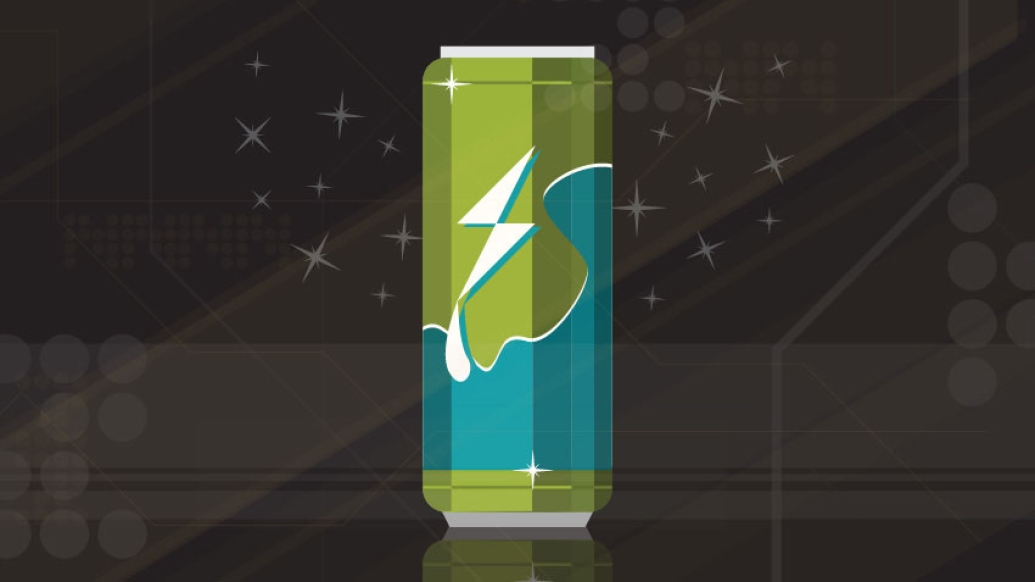Looking for a quick caffeine boost? Choose your beverage wisely, says one GI expert.
1:50 PM
Author |

Even though they're loaded with caffeine and sugar or artificial sweeteners, energy drinks have gained popularity in the market over the past several years.
The quick boost in energy might seem helpful in the moment, but how do these ingredients impact your digestive system?
For one, caffeine is a stimulant that increases gut motility, or the contraction of the muscles that propel contents in the gastrointestinal tract. This stimulating effect may lead to loose stools or diarrhea, which can contribute to dehydration. Caffeine may also act as a mild diuretic, meaning it can increase urine output. Additionally, it can increase jitteriness, anxiety and the inability to sleep well, with stress and anxiety often worsening symptoms of many gastrointestinal conditions, including Irritable Bowel Syndrome (IBS) and Inflammatory Bowel Disease (IBD).
Although the U.S. Food and Drug Administration recommends only allowing yourself 400 milligrams of caffeine a day, there's a wide variation in both how sensitive people are to the effects of caffeine and how fast their bodies metabolize it. For reference, some of the popular, small, two-ounce sized "shots" contain up to 200 milligrams of caffeine within that small container alone. Excessive consumption of energy drinks can acutely cause caffeine intoxication, resulting in tachycardia (fast heart rate), vomiting, cardiac arrhythmias, seizures, and even death, in some people.
The sugar content of these drinks is also large: Most contain 30 grams of sugar in about an eight-ounce serving size, which is the equivalent of more than seven teaspoons of sugar. The American Heart Association recommends no more than six teaspoons (or 25 grams) of added sugar a day for women and nine teaspoons (36 grams) for men.
Like Podcasts? Add the Michigan Medicine News Break to your Alexa-enabled device or subscribe for daily updates on iTunes, Google Play and Stitcher.
These high sugar energy drinks also provide a large number of empty calories, which can lead to increased blood sugar, diabetes and even contribute to dental problems.
The same can also be said about sugary coffee drinks, such as lattes and frozen blended beverages. They come packed with high amounts of added sugars, fat, and if made with dairy milk, high levels of lactose, which can all wreak havoc on your insides.
And when it comes to those "zero calorie" energy drinks, know that they actually are sweetened, but with artificial sweeteners, such as aspartame and sucralose. These hidden culprits have the potential to cause uncomfortable bloating, gas and diarrhea for certain people. Although these artificial sweeteners may have no impact on their digestive symptoms for some, consuming excessive quantities of them could cause a different set of negative health effects that could present later on: one study demonstrated daily consumption of diet drinks to be associated with a 36% greater risk of developing metabolic syndrome and a 67% increased risk for type 2 diabetes.
MORE FROM MICHIGAN: Sign up for our weekly newsletter
If you have IBS or IBD, excess amounts of refined sugar at one time may lead to GI distress since the sugar may not absorb well into your intestines. When this happens, the GI tract draws water into the bowel to dilute and flush out excess sugar, which can lead to more unwanted, an unexpected, bathroom runs.
Getting a boost without the extras
Still finding you need that 3 p.m. caffeine pick-me-up? Here are a few, small tweaks you can make to ensure they go down smoothly:
-
Stick to the basics and choose regular coffee or tea with a splash of your preferred creamer or milk. Both coffee and tea contain potent sources of healthful antioxidants – it's the extra ingredients that can upset your stomach.
-
When ordering, ask for the unsweetened or lighter version of the beverage.
-
Skip any tempting extras, like whipped cream or hot fudge, both which can easily upset a sensitive stomach.
-
Try a plant-milk alternative like soy, almond, oat or coconut milk to avoid lactose.
-
If you have a digestive disorder, or find you're sensitive to coffee or caffeinated teas, try alternatives like decaf coffee or tea, herbal teas, water infused with fruits such as lemon, lime, orange, berries, mint, cucumber or ginger, or sparkling water.
Paper referenced: "Diet soda intake and risk of incident metabolic syndrome and type 2 diabetes in the Multi-Ethnic Study of Atherosclerosis (MESA)," Diabetes Care. DOI: 10.2337/dc08-1799

Explore a variety of health care news & stories by visiting the Health Lab home page for more articles.

Department of Communication at Michigan Medicine
Want top health & research news weekly? Sign up for Health Lab’s newsletters today!





